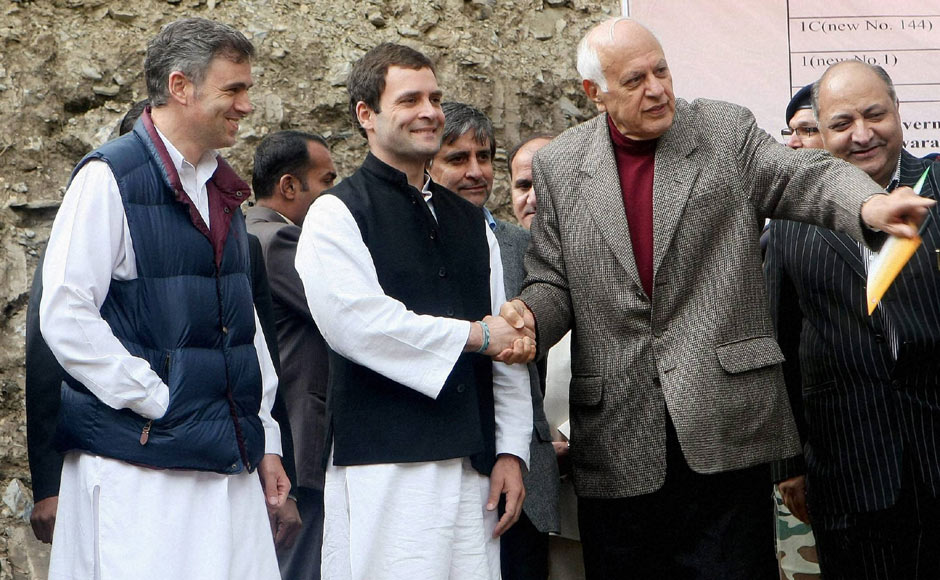As the Jammu and Kashmir assembly elections near their climax, tensions between two long-standing allies—Congress and the National Conference (NC)—have reached a boiling point. The once-cohesive alliance, which had survived decades of political turbulence, now finds itself divided, with accusations flying between the two parties. NC leader and former Chief Minister Omar Abdullah has publicly criticized Congress for failing to present a robust opposition, especially in the BJP-dominated Jammu region. This blame game reflects deeper issues that threaten the alliance’s electoral prospects and signals a major political crisis for both parties in the region. Omar Abdullah’s frustration is palpable and telling of the disarray in the Congress-NC partnership. His critique of Congress’s lackluster efforts in campaigning, especially in areas where the BJP remains dominant, underscores the alliance’s uncoordinated approach. In the last assembly elections, the BJP won 25 out of 90 seats and managed to form the government with the People’s Democratic Party (PDP). Now, as the BJP stands poised to make even further gains, the Congress-NC alliance appears disorganized, unable to mount a serious challenge. Abdullah’s dissatisfaction highlights the growing disconnect between the two parties, casting serious doubts on their ability to effectively challenge the BJP in this crucial election. The divisions within the Congress-NC alliance are further complicated by their divergent political strategies. The National Conference has made the reinstatement of Article 370—a highly charged issue in Jammu and Kashmir—central to its manifesto. This has put Congress in an awkward position. Although revoking Article 370 remains a popular demand in the Valley, the practical likelihood of achieving this goal is slim under the current national political climate. Congress, aware of this, has distanced itself from the promise, creating a rift in how both parties approach the issue. The promise, while symbolic for NC, exposes the weaknesses in Congress’s ability to align itself with regional sentiments without alienating its broader national base.

Further deepening the divide is Congress leader Rahul Gandhi’s controversial remark regarding the displacement of Kashmiri Pandits. His comment that Pandits were migrants from Pakistan-occupied Kashmir (PoK) has caused considerable outrage, particularly among the Pandit community, which has long held Congress and the then Chief Minister Farooq Abdullah accountable for the violence that forced them out of the Valley. Such historically insensitive remarks have not only alienated Congress from a key voter base but have also embarrassed their regional ally, NC. These missteps reveal the widening gulf between the two parties, as both struggle to stay relevant in a rapidly evolving political landscape. On the other hand, the BJP continues to dominate the political scene in Jammu and Kashmir. Since the abrogation of Articles 370 and 35A, the Modi-Shah-led BJP has successfully expanded its influence, creating an environment of political stability and governance in the region. Through the process of delimitation, which has increased political representation for marginalized communities like SCs and STs, the BJP has positioned itself as the party of inclusion and reform. This, coupled with its strategic governance measures, has left the Congress-NC alliance on the back foot. The once-dominant political families—the Abdullahs, Gandhis, and Muftis—are now scrambling to retain relevance in a region they once controlled with ease. Omar Abdullah, whose political fortunes have dwindled since losing the 2024 Lok Sabha election to pro-Pakistan independent candidate Engineer Rashid, now faces a make-or-break moment. A defeat in the upcoming assembly elections would not only endanger his political career but also the future of the Abdullah family in Jammu and Kashmir politics. Similarly, Mehbooba Mufti’s PDP, already decimated in the recent parliamentary elections, faces an existential crisis. The political dynasties of the region, which have long dominated its landscape, now appear to be on the verge of collapse.
The BJP, sensing the discord in the opposition ranks, is likely to capitalize on this opportunity. Should it retain its stronghold in Jammu and make inroads in the Valley, the party could cement its control over the region. A victory in Jammu and Kashmir would bolster the BJP’s standing at the national level and symbolize its governance capabilities in a sensitive region. For Congress and NC, however, the stakes could not be higher. A defeat would not just mark the end of a political alliance but signal the end of an era for dynastic politics in Jammu and Kashmir. As the elections draw to a close, the Congress-NC rift seems irreparable. The alliance’s inability to present a united front, coupled with the BJP’s strategic maneuvering, places them on shaky ground. If the BJP succeeds in these elections, it will signal a dramatic shift in Jammu and Kashmir’s political landscape—one that could mark the end of Congress-NC dominance and herald a new era of BJP hegemony in the region.






